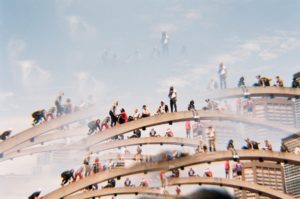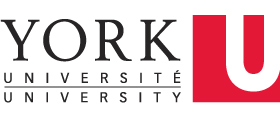York Left Consortium: Reflections on Capitalism’s Half-Life is a blog that began its life as a space for written interventions relating to the coronavirus and its aftermath by leftist faculty and grad students at York University (as well as some non-York experts invited by York faculty and students).
Its second phase, “Theory and Practice,” is focused on profiling through videos and short written statements what the recent work of thinkers (books or articles for authors, or in the case of activists, recent campaigns) implies for advancing socialism and the struggle against capitalism around the world.
Antifa and the Marxist Left: Some Questions and Answers
Answered by Walter, Antifa International Collective and posed by Marxist Studies in Global and Asian Perspective | QnA
Answered by Walter, antifa International Collective and posed by Marxist Studies in Global and Asian Perspective. The historical roots of widespread anti-fascism are in united and popular fronts especially prominent in the 1930s and led by Marxist-oriented parties and movements. Does antifa explicitly position itself in relation to that history?
Read moreCOVID-19 and Crisis in Western Agriculture
Alex Moldovan | York Graduate Researcher
The first few months of the pandemic has intensified structural contradictions in North American and the Western European political economy. The blows COVID-19 is dealing to agricultural production in the west are concerning because by chocking the flow of migrant workers food production is then slowed. The coronavirus pandemic has, in no small way, brought about a crisis in capitalist agriculture in the West.
Read more
Viral Anxieties
A.T. Kingsmith | York Graduate Researcher
Anxiety has long been an important response to potential threats or hazards in an environment. Indeed, historically, most social formations have involved persistent inequality and poverty that placed people under mental stress. But from sweaty palms and rapid breathing to increased heart rate and muscle tension, the mechanisms that once worked to protect people and assure safety and security—preparing the body for danger by putting it on alert—have become jumbled and misdirected under capitalism, no longer capable of eliciting action or responsiveness.
Read moreCoronavirus & Carceral Capitalism
Casey Buchholz | Guest Contributor
From a prison cell in 1930, Antonio Gramsci wrote: “The crisis consists precisely in the fact that the old world is dying and the new cannot yet be born; in the interregnum a great variety of morbid symptoms appear.” The political economic and biological relevance of Gramsci’s words and the conditions under which they were written extend well beyond historical parallel and literary metaphor. A crisis has metastasized from the micro-biological to the political economic. Now, neoliberalism is dying. In the interregnum, a great variety of morbid symptoms have appeared: social distancing, crisis policing, death camps, and pandemic labour. Of what disease are these symptoms? Not coronavirus. Carceral capitalism.
Read moreCoronavirus, the Economic Crisis and Indian Capitalism
Michael Roberts | Guest Contributor
Here we are, on the 30th of April, with a recession around the world, where there are now millions of cases of coronavirus which has hit almost all regions, making it a pandemic. We also have an increasing number of deaths, particularly in the United States and Europe. The number of cases is also increasing in other parts of the world—in Latin America, Asia, and to some extent, also in Africa. Clearly, the disease is spreading across the world and it is not over yet. We need to analyze what it means and also how it is impacting the economy.
Read moreCOVID-19 and ‘Actually Existing’ Unions
Steven Tufts | York Faculty
The shut-down of non-essential work in response to COVID-19 has decimated labour markets. The US Bureau of Labor Statistics reported that 20.5 million more workers lost their jobs in April, as official unemployment skyrocketed to 14.7%. It is the largest single-month increase in unemployment since the data series started in 1948. In Canada, the news was not any better as Statistics Canada reported that another 2 million jobs were lost in April following 1 million jobs lost in March as the unemployment rate increased to 13%. This percentage is a wild underestimation of the full impact of reduced hours and underemployment.
Read moreWe’re not all in this together
Lesley Wood | Piece of Interest
As CoVid19 cases in shelters and Long Term Care facilities soar, the police in Ontario are ramping up their enforcement of physical distancing bylaws. They ticket those gathering in groups, people standing closer than 2 metres apart, and those using closed park facilities. They can be fined $1000. In addition, police have the right now to ask anyone to show identification with their name, address and date of birth. Those who don’t comply can be fined up to $750.
Read moreNotes on Lenin at 150: Theoretical Preparation for Revolution in the Time of COVID-19
Kevin B. Anderson | Piece of Interest
Two weeks ago, April 22, was the 150th anniversary V.I. Lenin’s birth. What does it mean to consider Lenin 150 years after his birth and at the time of COVID-19? To many on the global left — from anarchists to social democrats — the answer would be a resounding, “He means nothing at all to us,” or, “We reject his legacy.” I believe that this would be misguided, as we still have a lot to learn from the Russian revolutionary thinker, even today, and in spite of the many valid criticisms of his politics and the fate of the USSR that he founded.
Read more